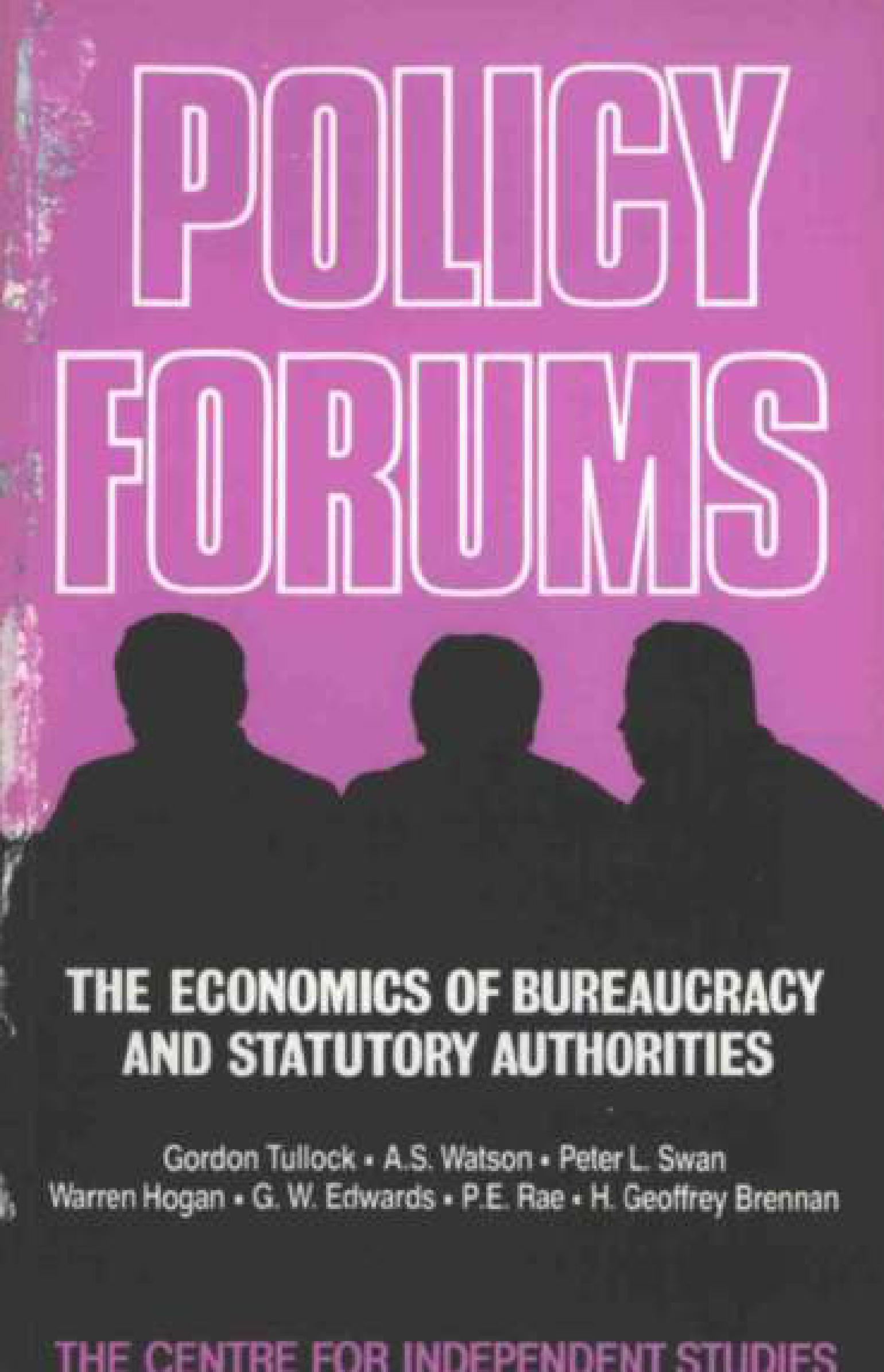
Economists have two quite distinct approaches to the study of government enterprises and regulatory agencies. Both are represented in this volume.
The traditional approach has been a normative one: the institution’s performance is evaluated in terms of criteria derived from the theory of efficient resource allocation. This theory goes under the somewhat confusing name, welfare economics, and has numerous applied offshoots, including public utility economics and cost-benefit analysis. The normative approach is well exemplified here by Geoff Edwards’s discussion of natural gas pricing in Victoria.
In the last couple of decades a new, positive, approach to the study of institutions has been developed. Explanations of the activities of institutions (governmental and others) are sought in the incentives and constraints confronting their managers, on the assumption that the latter behave as rational utility-maximiser s (or economic men). Two pioneers of the positive approach (which might be called comparative institutional analysis, but which has been termed — again somewhat confusingly — ‘public choice’) are James Buchanan and Gordon Tullock. Professor Tullock opened the proceedings reported in this volume with an informal introduction to the ‘public choice’ approach and a brief survey of some theories of regulation.
In his address, Tullock remarked that “the history of regulatory authorities has been one not of designing regulatory authorities which more and more serve the public interest, but an increase in understanding of why they don’t”. One could add that developments in pure and applied welfare economics, and practical experience, have made us increasingly aware of the difficulties of prescribing and enforcing appropriate policies for public agencies. The derivation of efficiency norms for an agency operating in an economy subject to numerous distortions and non-optimal interventions is a task of great analytical complexity. Furthermore , a subjective element enters in that it is a matter of opinion as to whether certain existing interventions should be assumed to persist indefinitely, or should be assumed away. (For example , the appropriate price and use pattern of Victorian gas depends on whether the existing ban on exports remains in force or not.) Another source of difficulty is the subjectivity of the decision-making process (within the enterprise or agency ) and of the costs and benefits that enter into it. Thus costs are not simply a given: it is the creative role of management to discover what the relevant alternatives, and hence the opportunity cost of actions, are. Requiring statutory bodies to present timely and proper account s (as discussed by Senator Peter Rae) serves a number of useful purposes but does not necessarily reveal inefficient performance .
If our ability to prescribe and monitor economic performance by public institutions is quite limited, greater importance attaches to the provision of incentive structures that will guide managers themselves to make decisions that are socially beneficial . In the market the principal means of promoting efficiency is competition, within and for markets, and for control of assets . Crude though they may be, even these incentives are lacking in the public sector. The radical way of reforming inefficient public enterprises is to privatise them. This theme is touched upon in several of the papers.
This book inaugurates a news series to be known a s Policy Forums . Each volume will report the proceedings of a seminar, and will consist of a number of thematically-related short papers, and the edited discussion. The series will give tangible expression to the aim of the Centre for Independent Studies of encouraging public participation in the discussion of policy issues . Although editing is necessary to turn speech into writing, it is hoped that the published Forums will preserve the spontaneity of the spoken word, and the clash of opinion.











